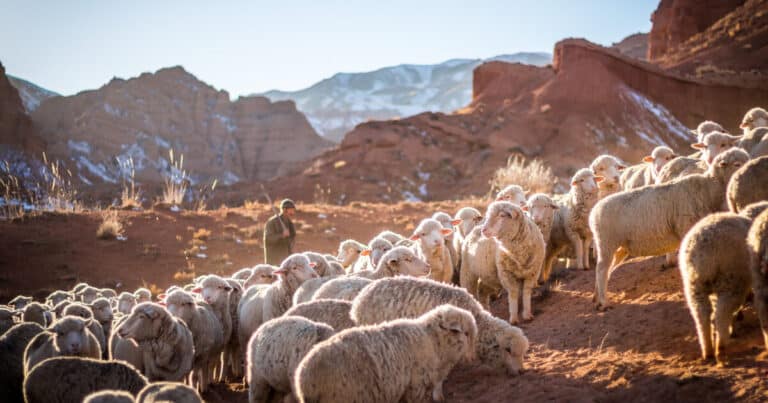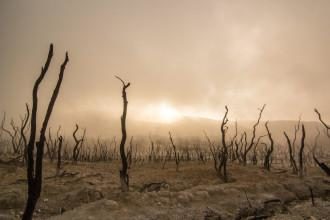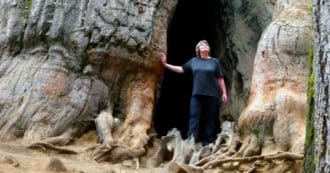Genesis 37 in Summary
In Genesis 37, we hear the continuation of the tale of Jacob/Israel (Jacob received the name “Israel” in his struggle with the angel) and his children in the land of Canaan . We read in this first book of the Bible how “Israel loved Joseph more than all his children, because he was the son of his old age: and he made him a coat of many colours” (Genesis 37:3) and this is where all the trouble begins.
The Consequences of Favoritism
Jacob’s favoritism towards Joseph causes Joseph’s brothers’ hatred of him. “They hated him and could not speak peaceably with him” (Ibid 37:4). Joseph had a dream of being bowed down to, and “when he told it to his brothers they hated him even more” (Ibid 37:5).
After Joseph shares another dream of being bowed down to, his brothers are so upset they are ready to kill him. Indeed, that’s what they almost do, but instead they end up throwing him in a pit and then selling him for twenty shekels of silver. They take Joseph’s colored coat, dip it in goat blood and bring it to their father Jacob/Israel. They tell Jacob/Israel that Joseph was killed by a wild animal, and Jacob/Israel mourns for his son. Joseph is sold into Egypt, and the chapter ends.
Let’s look deeper into this chapter by studying two commentaries on it from the bestseller, “Eco Bible.” In these commentaries we’ll examine the “shepherd consciousness” cultivated by Jacob and his sons and the relationship between nature and violence.
Eco Bible
Shepherd Consciousness by Rabbi Fivel Yedidya Glasser
Genesis 37:2 – These are the generations of Jacob. Joseph, being seventeen years old, was feeding the flock with his brethren; and the lad was with the sons of Bilhah, and with the sons of Zilpah, his father’s wives: and Joseph brought unto his father their evil report.
The patriarchs and matriarchs were shepherds. The Torah tells us that Abraham, Isaac, Jacob, Rachel, Joseph and his brothers, and later Moses, his wife Zippora, and young King David, all herded goats and sheep (Genesis 37:2). The greatest of the early Biblical leaders chose this profession, a livelihood scorned by surrounding cultures. Years after Joseph’s exile to Egypt and rise to viceroy to the king of Egypt, when his brothers came to him in exile, Joseph presented them to Pharaoh, the king of Egypt. The question that most interested the king was: “What is your occupation?” “We are shepherds,” they replied to Pharaoh, “like our fathers before us” (Ibid 47:3) Shepherding was not a respected occupation in Egypt, and Pharaoh relegated Joseph’s family to the far-off land of Goshen.
Why did so many Israelite original leaders become shepherds? Rabbi Abraham Isaac Kook explains that the advantage of shepherding may be found in the shepherd’s secluded lifestyle (Ein Eyah and Orot HaKodesh). While engaged with flocks, ambling through hills and valleys, the shepherd is removed from the noisy distractions of society, providing him or her with ample time for inner reflection. Unlike farming, shepherding does not require great exertion. Shepherds engage constantly with the real world, seeking water, shade, and good fodder for the animals.
What is the value of the solitude and simplicity of the shepherd? And how can it translate into our own lives? How do we balance reclusive behavior with the greater ideals of refining humanity and elevating the universe?
Rabbi Kook explains, “The greater the soul, the more it must struggle in order to find itself; the more the depths of the human soul are hidden from the conscious mind. One must have extended solitude and self-reflective prayer, examining ideas, deepening thoughts, and expanding the mind, until finally the soul will truly reveal itself, unveiling some of the splendor of its brilliant inner light” (Orot Hakodesh).
In order to cultivate one’s greatness, it is first necessary to develop a deep soul-awareness, including through silence and isolation. When one truly engages in such a practice, one will experience a positive impact on both their personal life, as well as on their surroundings. Ultimately, the intent of this withdrawal is to benefit the larger world, and not only to gain personal spiritual fulfillment. The intent of the personal spiritual path of growth is to positively impact the larger world, both in the immediate orbit of the individual, but also on a deeper and more spiritual level for the world as a whole.
The “silence” of the shepherd is not just the absence of speech. It is a sublime language of silence, flowing from an outpouring of the soul, a vehicle of Divine inspiration. The depths of the soul demand silence. Silence is full of life, revealing treasures from the beauty of wisdom. Yet today’s high-tech, Internet-connected world does not leave space for an individual to hear silence. Does wireless access enable us to access the inner recesses of our own being?
Rebbe Nachman of Breslov teaches that one should spend an hour of every day in self-reflective prayer (Likutei Moharan). This significant investment of time, to simply be with God – without formal prayers, and without study or engaging in religious commandments, provides a platform to simply “be.” This time could include mundane conversation with God or soul-wrenching self-analysis. Regardless of the content, in this sacred time, we can come to taste the Divine encounter that our forefathers exemplified as shepherds. This one hour of being with God, of simply being, will come to inform who we are and what we do in the world.
To “Be” and Not To “Do”!
When we are too caught up in experiencing the world without “shepherd consciousness,” we tend to make decisions from our own narrow, “get-ahead” reality. When we focus too much on “doing,” without making time for “being” – that is to say, communing with the Divine – we are more likely to make decisions that transform the earth in negative ways. This is the source of many environmental problems today. A society driven by consumption and industrial development can overlook deforesting the rainforests or irrevocably harming the climate. It is precisely the accessing of our inner selves that enables us to encounter the larger picture of our own reality.
If everyone, from the average consumer to the corporate CEO, dedicates time each day to rekindle their own inner potential as vehicles for God in the world, their use of the natural world will be informed by their relationship with the Creator of the natural world. Mindfulness of the bigger picture is an essential tool for any individual who cares about the world in which we live.
We do not need to become shepherds in the field to learn “shepherd consciousness.” A simple commitment to withdraw from the world for brief periods and engage with more spiritual realms will provide us with a broader perspective on our own lives and the decisions we make. We need to focus on human being, not human doing. If we stand any chance of returning to ecological balance, we must find inner spiritual balance and clarity of vision that our ancestors may have found more easily in simpler times.
Nature and Violence
Genesis 37:12 – Now His Brothers Had Gone to Pasture Their Father’s Flock at Shechem.
The incident of how Joseph’s brothers maltreated him near Shechem exemplifies how acts of violence against others inevitably turn to acts of violence amongst one’s own family and community. This may explain why the Torah mentions Shechem, the brothers’ location before throwing Joseph into the pit, three times. The repetition seems unnecessary, but points to the earlier incident where Simeon and Levi massacred the men of Shechem in response to the rape of their sister, Dinah (Genesis 34). The Torah appears to be teaching that one act of violence leads to another, ultimately with more victims.
Jared Diamond, in his book Collapse, provides many maps: one illustrates the world’s war zones, another shows the world’s areas of greatest environmental degradation. The two maps are essentially identical, underscoring a correlation between war and environmental impact.323 Does war cause environmental degradation, the other way around, or both? When humankind wages war on itself, nature and the environment are often the greatest victims. At the same time, pollution of critical natural resources, like rivers, can foment competition for survival so intense, it can turn to war.
Concluding Genesis 37
In this thrilling chapter, we saw the unravelling of a family, and when we looked deeper, we saw the power of the shepherd consciousness and the relationship between nature and violence. Learning the tales of our Biblical ancestors, we are inspired by their greatness and pained by their flaws. They were imperfect humans like us, yet they can remind us that no matter our flaws, we have potential to change the world.
* Featured image source







